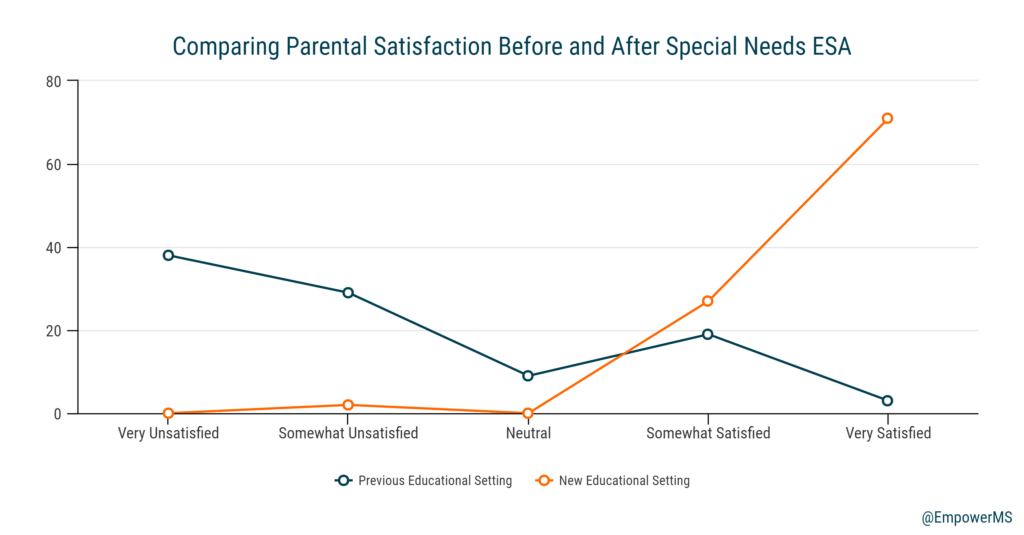The Importance Of Understanding Parental Satisfaction

There are numerous measures used to determine the quality of the education that a child is receiving, including standardized test scores, graduation rates, or accountability ratings. Using these measures, a near-consensus of the “gold standard” studies—those that employ random assignment to determine the causal impact of a policy—have found that students in a school choice program benefit academically from the new setting.
However, the most important and often overlooked measure is parental satisfaction. Parents are attuned to their child’s unique situation, learning needs, and educational progress in ways that cannot always be captured in test scores.
What You Need To Know:
- Parental satisfaction is the most important yet often overlooked measure of the quality of education a child is receiving.
- Every prior study on parental satisfaction has found a direct correlation between parental choice and school satisfaction.
- Mississippi’s Special Needs ESA is no different: 98 percent of parents are satisfied with their child’s new school compared to just 22 percent who were satisfied in with their child’s previous school.
In every prior study that has asked about parental satisfaction, there has been one common theme: Parents were more satisfied with their child’s school if they were free to choose that school.
A review of the voucher program in Cleveland found that “two-thirds of parents new to choice schools reported being very satisfied with the academic quality of their child’s school, as compared to fewer than 30 percent of parents with children in public schools.”
In a survey of parents nationwide whose children attend private school using some type of scholarship that reduces (or eliminates) tuition, “72 percent of scholarship-using parents gave their child’s school a grade of A compared to just 16 percent of parents in the control group,” which consisted of similar families in district schools.
Other studies from Florida and Milwaukee have similar results. There is a clear relationship between empowering parents with the ability to choose their child’s school and parents being satisfied with their child’s school.
After all, parents in a school they choose have the ability to make another choice if they are not satisfied.
In many ways, parents are the ultimate accountability rating. When we look at Mississippi’s largest private school choice program, the Special Needs ESA, we believe understanding parental satisfaction with the program is so important in judging this program. This is what we did in our recently released report, The Special Needs ESA: What Families Enrolled In The Program Are Saying After Year One.
Parental Satisfaction And The Special Needs ESA

This is what the data found. Ninety-eight percent of families enrolled in the Special Needs ESA expressed high levels of satisfaction with their child’s new school, including:
- 71 percent who are very satisfied with the school or program their child is currently in;
- 27 percent who are somewhat satisfied; and
- Two percent who are somewhat unsatisfied.
This contrasts sharply with parents’ low level of satisfaction with the school that their child was attending prior to receiving an ESA, for which fewer than three in 10 respondents expressed satisfaction, including:
- 38 percent who were very unsatisfied with the school or program in which their child was educated before enrolling in the ESA program;
- 29 percent who were somewhat unsatisfied;
- Nine percent who were neither satisfied nor unsatisfied;
- 19 percent who were somewhat satisfied; and
- Five percent who were very satisfied.
The results are clear: Mississippi’s Special Needs ESA program has empowered families to move their children to new schools and educational settings that work best for their individual learning needs.
To stay connected with what is happening in Jackson and up to date with the school choice and education reform movement in Mississippi, Join The Movement today.
